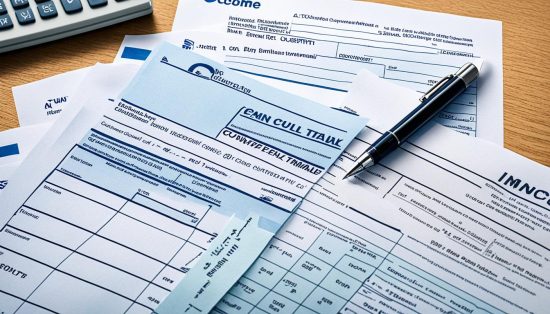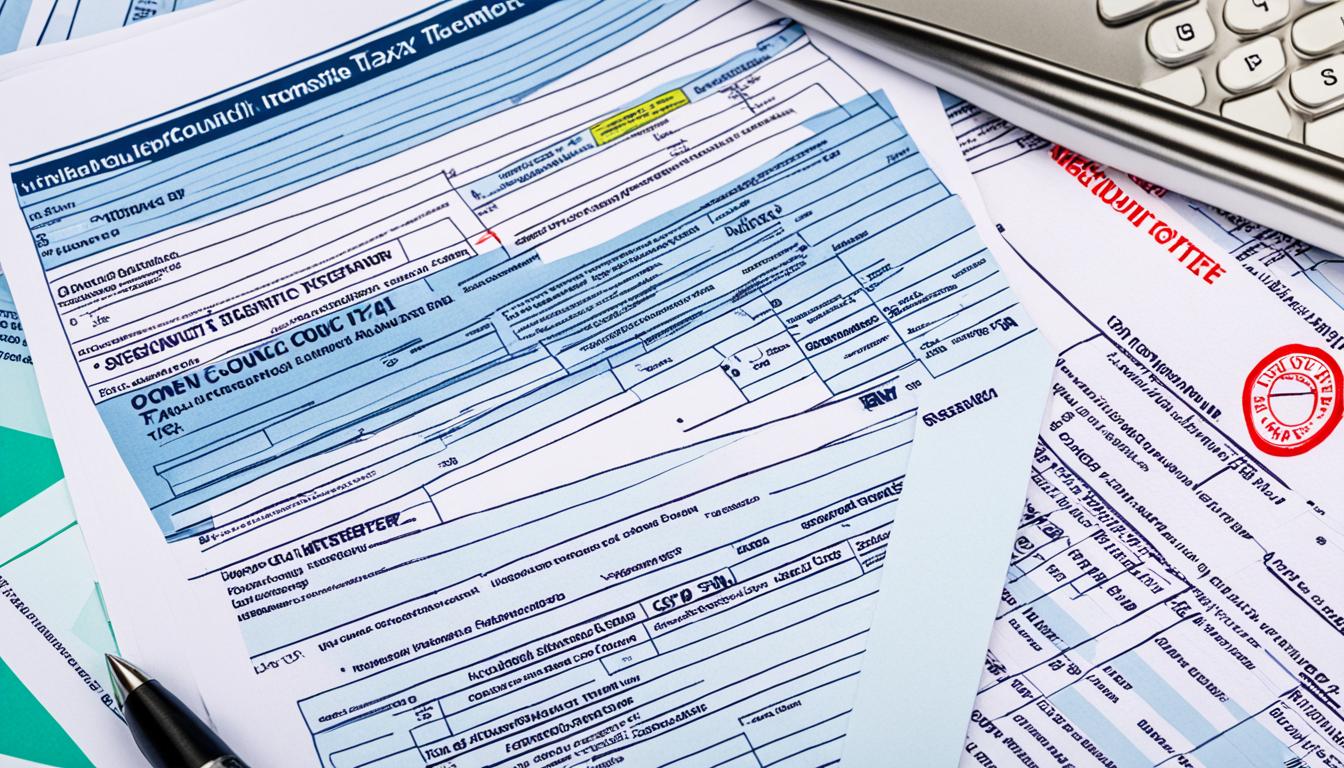Last Updated on: 11th July 2024, 08:41 am
If you are a resident of the United Kingdom and own or rent a property, you may be required to pay council tax. This tax is used to fund local services such as schools, waste management, and infrastructure maintenance. However, if you are on a low income or have certain circumstances, you may be eligible for a council tax reduction. A council tax reduction can significantly reduce the amount you have to pay, helping to ease the financial burden of living expenses.
In this article, we will guide you through the process of applying for a council tax reduction in the UK, ensuring that you don’t miss out on this valuable opportunity. So, if you’re struggling to keep up with your council tax payments or simply want to know if you qualify for a reduction, keep reading to find out more.
Understanding Council Tax Reduction
Council Tax Reduction is a government scheme designed to assist individuals with low incomes in the United Kingdom by providing a discount on their council tax bills. This scheme plays a crucial role in helping those who struggle to meet their council tax obligations, ensuring they can maintain a decent standard of living.
What is Council Tax Reduction?
Council Tax Reduction is a local authority-administered programme that allows eligible residents to receive a discount on their council tax payments. The amount of reduction received is determined by the individual’s financial circumstances, such as their income, savings, and household composition.
Who is Eligible for Council Tax Reduction?
To be eligible for Council Tax Reduction, individuals must be on a low income and be responsible for paying the council tax on their property. This includes those who are unemployed, employed, or receiving certain benefits, such as Universal Credit, Jobseeker’s Allowance, or Pension Credit.
Types of Council Tax Reduction
There are two main types of Council Tax Reduction schemes in the UK: the working age scheme and the pension age scheme. The pension age scheme is often more generous, with higher income thresholds and more favourable eligibility criteria. The specific details of each scheme vary by local authority, so it’s important to check the requirements in your area.

Within the working age scheme, there are typically five different eligibility levels based on factors like income, savings, and household composition. The amount of council tax reduction can range from 75% to 100% of the total bill, depending on the applicant’s circumstances.
Understanding the intricacies of Council Tax Reduction is crucial for individuals and families who are struggling to make ends meet. By taking advantage of this valuable government support, they can alleviate the financial burden and maintain a better quality of life.
Checking Your Eligibility for Council Tax Reduction
Before applying for a council tax reduction, it’s essential to determine if you’re eligible. Your eligibility will depend on factors such as your income, savings, household composition, and your local council’s specific council tax reduction scheme. By understanding the eligibility criteria, you can ensure a smooth application process and maximise your chances of securing the financial assistance you need.
Income and Savings Thresholds
To be eligible for a council tax reduction, your income must fall below a certain threshold set by your local council. Additionally, your savings or capital must not exceed £16,000, unless you’re entitled to the guarantee credit part of Pension Credit. These thresholds are designed to target individuals and families with limited financial resources, ensuring the council tax reduction scheme benefits those who need it most.
Residence and Liability Requirements
You can qualify for a council tax reduction if you live in the property as your main home, are liable to pay council tax, and meet the residence rules, which include being present in Great Britain with the correct rights to be there. The council tax reduction scheme is intended to provide assistance to individuals who are responsible for paying council tax and reside in the property they are taxed for.
Discounts and Rebates
Depending on your specific circumstances, you may be eligible for additional discounts or rebates on your council tax bill. These include:
- Council Tax Reduction for individuals living in properties in bands E to H with income and capital below certain thresholds.
- Second Adult Rebate if you live with another adult who meets specific criteria, such as having a low income and not being responsible for paying council tax separately.
- A 25% discount for individuals living alone on council tax.
- Exemptions for individuals under 18, full-time students, student nurses, and some apprentices or trainees.
- Disregards for carers who spend at least 35 hours a week caring for someone in the household.
By familiarising yourself with these various discounts and rebates, you can ensure you’re claiming all the financial assistance you’re entitled to, maximising the potential savings on your council tax bill.

Determining your eligibility for council tax reduction is the crucial first step in accessing this valuable financial assistance. By understanding the criteria and exploring the available discounts and rebates, you can take the necessary steps to alleviate the burden of council tax and ensure you’re receiving the support you’re entitled to.
Gathering Required Documentation
When applying for council tax reduction, council tax discount, or council tax benefit, you’ll need to provide various supporting documents to your local authority, including evidence of your income, proof of your savings, and potentially other documents depending on your specific circumstances.
1. Evidence of Income
You may need to submit the following documents as proof of your income:
- Pay slips
- Benefit award letters
- Pension statements
- Self-employment accounts
2. Proof of Savings
To demonstrate your savings, you’ll typically need to provide:
- Bank statements for the last 3 months
- Building society statements
- Investment statements
3. Other Necessary Documents
Depending on your situation, your local authority for tax relief, municipal tax allowance, or local government tax reduction may require additional documents, such as:
- Tenancy agreements
- Utility bills
- Disability-related documents
- Care cost information
Your local council’s website should provide a comprehensive list of the required council tax reduction application documents, council tax discount application documents, or council tax benefit application documents. You may be able to submit these documents online or by post, depending on your council’s preferred method.

It’s important to gather all the necessary residential tax concession application documents, community charge deduction application documents, or local taxation rebate application documents before submitting your application to ensure a smooth and timely process.
Applying for Council Tax Reduction
The process of applying for council tax reduction in the UK can vary depending on your local authority, but generally involves several key steps. Whether you’re seeking a council tax discount, benefit, or relief, it’s crucial to understand the available application methods, how to fill out the necessary forms, and any associated deadlines or timing considerations.
1. Application Methods
You can typically apply for council tax reduction through your local council, either online, by post, or in some cases, by telephone. Many councils offer an online application process, which can be a convenient option for submitting your details and supporting documentation. Alternatively, you may be able to download and print a paper application form to complete and send by post. Some councils also accept applications over the phone, though this may depend on your specific circumstances.
2. Filling Out the Application Form
The council tax reduction application form may require you to provide a range of information, including details about your income, savings, household composition, and any other relevant factors. It’s essential to ensure that you accurately complete all sections of the form and provide the necessary supporting evidence, as this will help expedite the processing of your application.
3. Deadlines and Timing
It’s important to submit your council tax reduction application as soon as possible, as there may be deadlines and timing considerations to be aware of. In some cases, you may be able to backdate your reduction if you’re already eligible, but this may depend on the specific rules and regulations in your local authority area. Your council’s website should provide guidance on the application deadlines and any potential backdating options.
| Application Consideration | Details |
|---|---|
| Backdating |
|
| Review Process |
|

What to Do if Your Application is Unsuccessful?
If your application for council tax reduction, council tax discount, or council tax benefit has been unsuccessful, you have the right to challenge the decision made by your local authority. This process is known as a council tax reduction appeal. By following the appropriate steps, you can ensure your case is reconsidered and potentially secure the local government tax reduction, residential tax concession, or community charge deduction you are entitled to.
- Contact your local council: The first step is to reach out to the council that made the initial decision and request a reconsideration. Explain why you disagree with the verdict and provide any additional evidence or information that could support your appeal.
- Provide supporting documentation: Gather all relevant documents, such as proof of income, savings, and any other necessary documents that demonstrate your eligibility for the municipal tax allowance or local taxation rebate.
- Escalate to the Valuation Tribunal: If the council still does not change its decision, you may be able to appeal to the Valuation Tribunal. This independent body can review the council’s decision and determine whether it was made correctly based on the rules of the Council Tax Reduction scheme.
Remember, the municipal levy exemption appeal process can be complex, so it’s essential to be persistent and provide as much supporting evidence as possible. Challenging an unsuccessful council tax benefit appeal can be time-consuming, but it’s worth the effort to ensure you receive the local authority tax relief you’re entitled to.
By following the proper steps and advocating for your case, you can increase your chances of a successful council tax discount appeal and secure the financial support you need. Don’t hesitate to seek assistance from reputable organisations or seek advice from experts if you encounter any difficulties throughout the process.
Additional Support and Discretionary Reductions
In addition to the standard Council Tax Reduction scheme, your local council may also offer discretionary reductions if you’re struggling to pay your council tax. This council tax reduction discretionary programme provides an extra layer of support for residents facing financial hardship. You can apply for a council tax discount discretionary or a council tax benefit discretionary reduction whether or not you’re already receiving Council Tax Reduction.
1. Understanding Discretionary Reductions
The local authority tax relief discretionary scheme grants councils the power to reduce a person’s council tax liability under Section 13A (1)(c) of the Local Government Finance Act 1992. This allows them to provide municipal tax allowance discretionary reductions to individual council taxpayers, groups with common circumstances, those in defined areas, or all taxpayers within the council’s area.
Councils consider each local government tax reduction discretionary application based on individual circumstances and reasonableness principles. Reasons for seeking a residential tax concession discretionary reduction can include low income, emergencies, and changes in circumstances such as job loss or insufficient coverage by the standard Council Tax Support scheme.
2. Applying for a Discretionary Reduction
To apply for a community charge deduction discretionary reduction, you’ll need to provide evidence of your financial hardship, such as medical letters, proof of rent arrears, or a detailed monthly budget. The same application form is used for both Council Tax Reduction and the Discretionary Housing Payment Scheme, so you’ll need to specify which scheme(s) you’re applying for.
Your local council’s website should explain how to apply for a local taxation rebate discretionary reduction and the types of supporting evidence they may require. Each application is individually assessed, taking into consideration factors such as discounts, exemptions, and reductions for disabilities on the council tax bill.
3. Examples of Supporting Evidence
Applicants must demonstrate efforts to meet their council tax obligations, seek additional income sources, and show a lack of access to assets for payment. The supporting evidence required may include:
- Bank statements
- Debt statements
- Proof of earnings
- Documents supporting exceptional circumstances causing financial pressure
Remember, municipal levy exemption discretionary reductions do not cover court costs, recovery costs, or penalty charges. If your application is successful, the reduction will be applied directly to your council tax bill.
Conclusion
Applying for Council Tax Reduction can be an effective way to lower your local tax burden if you’re on a low income or claiming certain benefits. By understanding the eligibility criteria, gathering the required documentation, and following the application process in your local area, you can potentially receive a significant discount on your council tax bill. If your initial application is unsuccessful, you have the option to challenge the decision and explore additional support, such as discretionary reductions, to help manage your council tax payments.
The Council Tax Reduction guide, council tax discount guide, council tax benefit guide, local authority tax relief guide, municipal tax allowance guide, local government tax reduction guide, residential tax concession guide, community charge deduction guide, local taxation rebate guide, and municipal levy exemption guide can all provide valuable information to help you navigate the process and ensure you’re taking advantage of any available discounts or reductions. With the right approach, you can potentially save hundreds or even thousands of pounds on your annual council tax bill.
Remember, the application process and eligibility criteria may vary depending on your local council, so be sure to check the specific requirements in your area. By taking the time to understand your options and submit a thorough application, you can potentially reduce the financial burden of council tax and free up resources for other important expenses.
FAQ
What is Council Tax Reduction?
Council Tax Reduction is a scheme that allows eligible individuals to receive a discount on their council tax bill. Your bill could be reduced by up to 100% depending on your circumstances, such as your income, savings, number of children, and whether other adults live with you.
Who is eligible for Council Tax Reduction?
You could be eligible for Council Tax Reduction if you’re on a low income or claiming certain benefits, regardless of whether you own your home, rent, are unemployed or working. The amount of reduction you receive will depend on your local council’s scheme and your specific circumstances.
What are the types of Council Tax Reduction?
There are two main types of Council Tax Reduction: the ‘working age’ scheme and the ‘pension age’ scheme, with the latter often being more generous.
How do I check if I’m eligible for Council Tax Reduction?
Your eligibility will depend on your local council’s scheme and your personal circumstances, such as your income, savings, number of children, and whether other adults live with you. You can use the postcode finder on the Royal Mail website to locate your local council’s website, which should provide information on their specific eligibility criteria.
What documents do I need to apply for Council Tax Reduction?
When applying for Council Tax Reduction, you’ll need to provide various supporting documents to your local council, including evidence of your income, proof of your savings, and potentially other documents depending on your specific circumstances. This may include pay slips, bank statements, benefit award letters, and any other relevant financial information.
How do I apply for Council Tax Reduction?
You can apply for Council Tax Reduction through your local council, either online, by post, or in some cases, by telephone. The application process may involve filling out a form, which could include sections for you to provide details about your income, savings, household composition, and any other relevant information.
What can I do if my application for Council Tax Reduction is unsuccessful?
If your application for Council Tax Reduction is unsuccessful, you can challenge the decision by contacting your local council and asking them to reconsider. You’ll need to explain why you disagree with the decision and provide any additional evidence or information to support your case. If the council still doesn’t change its decision, you may be able to appeal to the Valuation Tribunal.
What other support is available besides Council Tax Reduction?
In addition to the standard Council Tax Reduction scheme, your local council may also offer discretionary reductions if you’re struggling to pay your council tax. You can apply for a discretionary reduction whether or not you’re already receiving Council Tax Reduction, and you’ll need to provide evidence of your financial hardship.




















No Comments
Leave a comment Cancel